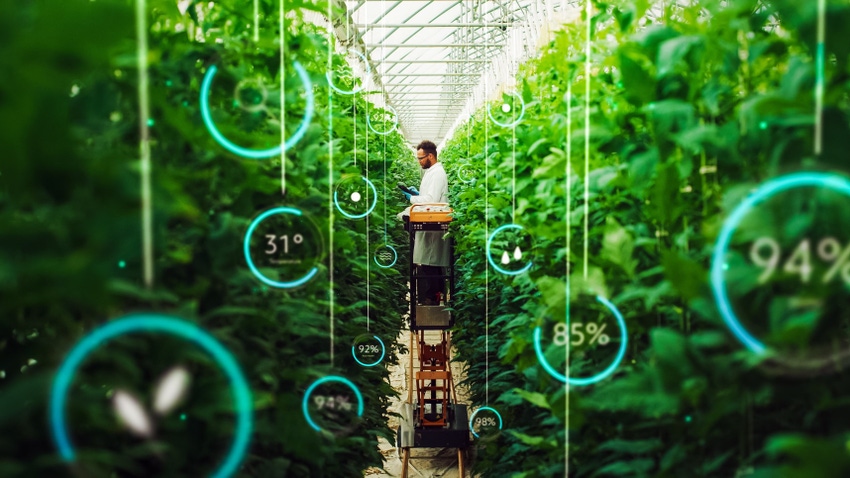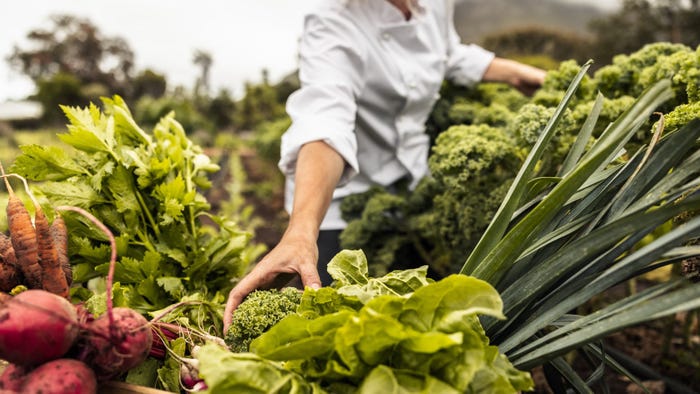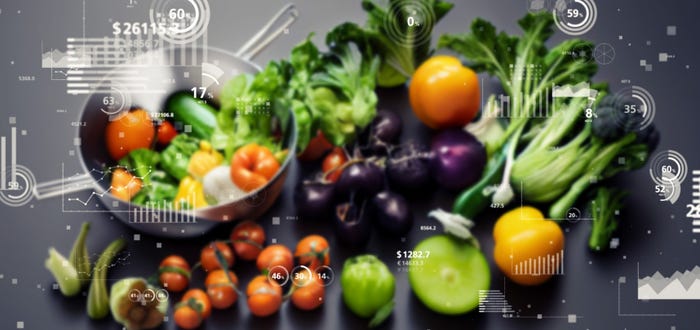Sacrifices may be necessary for CPG brand sustainability, experts claim
In a roundtable webinar discussion, several experts chimed in on how important sustainability has become for food and beverage companies, which includes embracing new technologies and reducing food waste — but also comes with compromises.

At a Glance
- Technologies that can reduce environmental impact include precision agriculture, plant-based proteins and more.
- Packaging options like glass may not be as good for the planet as many consumers think.
- Making clean label products sustainably usually requires compromise.
Food systems are linked to almost a third of global greenhouse gas emissions, and sustainability is playing a rising role in consumer purchasing decisions.
As such, food waste, packaging, preservation, technology and more were all on the docket at the “Ditch the buzzwords and dive into real solutions” sustainability roundtable, hosted by Food & Beverage Insider Content Director Audarshia Townsend.
The discussion kicked off with technology — specifically, how food and beverage brands can leverage innovations like artificial intelligence (AI) to optimize resource utilization and minimize environmental impacts.

Tools like AI can assist with crop production in unexpected ways.
New problems, new tech
“AI can be used in agriculture for tasks such as irrigation weeding, spraying, crop tracking,” Lourdes Diaz-McAgy, founder and president of Total Nutrition Technology, said. “They’re reducing pesticides and herbicides while increasing productivity and can also help in disease detection.”
Anian Schreiber, founder and managing director of Koa Group, agreed. He claimed that AI can improve more than just a company’s environmental impact, especially for small family farms concerned about issues like deforestation. “That’s where the combination of AI … working together with big data will protect the environment as well as improve the yields and knowledge dissemination for smaller farms.”
Other new technologies that can reduce environmental impact include precision agriculture and plant-based dairy and meat alternatives, which require less water and energy than conventional animal products. But what about the next steps in the supply chain?
Processing and packaging for a healthier planet
When it comes to packaging and processing food products, some options are more sustainable than others, but which ones are better might surprise you.
“We do get asked a lot of times, why are we not in glass?” Olivia Chen, co-founder at Twrl Milk Tea, said. “Glass is really heavy. And it has a heavy environmental impact … just transporting it. Aluminum is the most recyclable to use. And to turn a product into a can is not easy. It took us a year and half to figure out.”
Related to packaging is the processing that leads to a finished product. This includes preservation, but you may need to compromise to ensure sustainability.
First, reduce reliance on refrigeration by using natural preservatives (or reduce harm by using renewable energy). Keep in mind, however, that preservation techniques like pasteurization will require changes in a product's formula.

Science and food have always been inextricably intertwined.
Food waste and sustainability
Reducing food waste in the supply chain is also vital to sustainable operations. For example, Twrl Milk Tea created an upcycled product using tea tree branches and bark that would’ve otherwise been discarded.
“Another thing that we do is, at the end of our brewing, we brew hundreds and hundreds of pounds of tea ... and we take that brewed tea and give it to local farmers,” Chen explained. “Those are conscious decisions that are expensive sometimes, to be honest, but we look for copackers and manufacturers that will support that vision.”
Food waste reduction is a critical aspect of ensuring we can feed a growing population, Schreiber said. But it’s also so much more than that.
“We already can feed [the population] today,” he said. “Everybody talks about Telsa, but nobody is talking about reducing food waste in order to save our planet. So, I think, let’s take a much more delicious option … and eat ourselves out of this problem.”
Ensuring a sustainably clean product
Consumers want clean, healthy products too, but balancing your ingredients panel with sustainability can come with sacrifices.
“If I want to bring this product to the consumer with a shelf life of 18 months, I have to make some compromise there,” Schreiber said. “You find a right triangle between great taste, as natural as possible, and expectations from the consumer in terms of shelf life and availability. And it’s not always easy to find right away. Clean label is compromise.”
And yet taste, the experts say, is still king. Twrl Milk Tea uses pea protein, and it took a lot of time and effort to develop a product that tastes amazing.
“At the end of the day, the consumer still wants to taste something really yummy,” Chen explained. “And sometimes they forget that maybe what tastes so good is not so great for them. So, our job right now is to find this better-for-you version.”
“We could probably do a lot more business if we just created sugar water,” she said. “But that’s not our goal. Our goal is to create better-for-you products that we can feel proud of from a sustainability perspective.”
If you missed the webinar, you can still watch it by clicking the link.
About the Author(s)
You May Also Like






